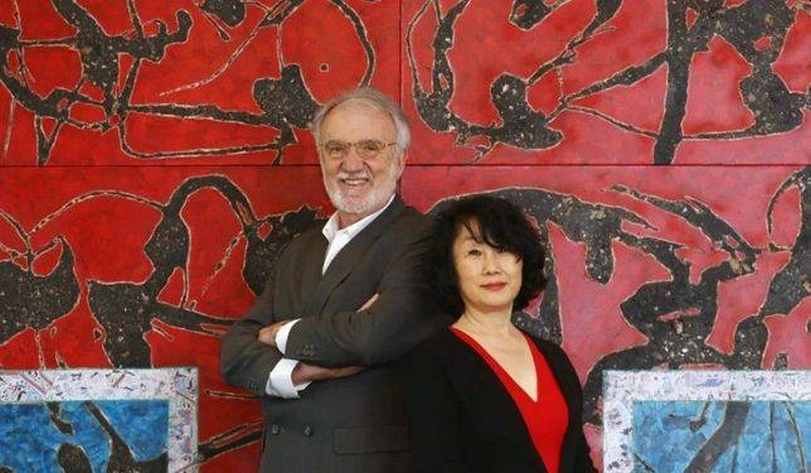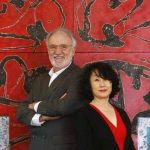Founders of Taiwan biotech startup Eden Biologics sentenced to a year in prison for stealing trade secrets from Genentech and $101 million in wire fraud

Founders of a Taiwan biotech startup were sentenced to over a year in prison each on Tuesday for plotting to steal trade secrets from Genentech in a $101 million scheme, the US Department of Justice (DOJ) announced.
Racho Jordanov, former CEO, and former chief operating officer Rose Lin were both the co-founder of JHL Biotech (later known as Eden Biologics) pleaded guilty last year to conspiracy to commit trade secret theft and wire fraud in the amount of $101 million.
In a ruling by Senior U.S. District Judge William Alsup at San Francisco federal court, Jordanov was sentenced to a term of imprisonment of twelve months and one day, to be followed by a term of supervised release of 36 months, a condition of which shall be to serve nine months in home confinement. Lin was sentenced to a term of imprisonment of twelve months and one day, to be followed by a term of supervised release of 36 months.
Founded in 2012 by Racho Jordanov and Rose Lin, Eden Biologics is a biotech startup that develops biosimilars and accelerates the development programs for clients & partners through the provision of contract development and manufacturing services. We are specialists in manufacturing biologics, from cell line development to commercial manufacturing with both global and regional regulatory affairs expertise.
According to plea agreements, between 2011 and 2019, Jordanov hired former Genentech employees to work at JHL Biotech, several of whom he learned surreptitiously brought, without authorization, confidential and proprietary documents with them from Genentech to JHL Biotech.
Jordanov later used confidential Genentech information from ex-Genentech workers he hired to speed up and reduce costs for producing generic versions of products made by the South San Francisco-based company.
According to DOJ, Eden Biologics “used only some of the stolen documents, but Jordanov tolerated this practice by the employees of JHL Biotech and made no effort to discourage its employees from using the documents or information they brought with them.”DOJ also added:
“The employees Jordanov hired provided the Genentech documents and information to JHL Biotech, which, at times, allowed the company to cheat, cut corners, solve problems, provide examples, avoid further experimentation, eliminate costs, lend scientific assurance, and otherwise help JHL Biotech start-up, develop, and operate its business secretly using the intellectual property and scientific know-how taken from Genentech. Jordanov admitted that he suspected that some or all the stolen information was brought to JHL Biotech in violation of relevant Genentech non-disclosure agreements and employment contracts, but he made no effort to verify whether that was true.”
The U.S. attorney’s office said in a statement that the thousands of documents allowed the company “to cheat, cut corners, solve problems, provide examples, avoid further experimentation, eliminate costs, lend scientific assurance, and otherwise help JHL Biotech.”
Between 2014 and 2018, Jordanov used or told others to use Genentech information to help in the construction of JHL Biotech facilities, including a factory in China, prosecutors said.
Then in January 2014, Lin arranged for Xanthe Lam, a Principal Scientist working full-time at Genentech, to secretly work as the head of formulation for JHL Biotech. Lin encouraged JHL Biotech scientists to ask Xanthe Lam for assistance or information when they ran into problems. Throughout this time, Lin knew that Xanthe Lam continued to work for Genentech and was not authorized to work for JHL Biotech. Lin also knew that Xanthe Lam did not want Genentech to learn of her work for JHL Biotech. Lin agreed to pay Xanthe Lam’s consultancy fee through her husband, Allen Lam.
To further conceal Xanthe Lam’s work for the company, JHL Biotech did not enter a direct contract with Xanthe Lam. Instead, it always paid her through Allen Lam. Lin agreed to conceal Xanthe Lam’s work for JHL Biotech because Lin knew Genentech would not permit Xanthe Lam to work for another biotech company. Lin also directed JHL Biotech employees to use Allen Lam’s JHL email address to email questions to Xanthe Lam. Lin also instructed JHL Biotech employees to refer to Xanthe Lam as “Allen” in these email communications.
DOJ also said that “Jordanov and Lin knew that if they had not concealed these facts, Sanofi would not have agreed to the corporate transaction and invest approximately $80 million in JHL Biotech securities pursuant to the subscription agreement and approximately $21 million pursuant to Biologics Products Options Agreement (BPOA) for a total investment by Sanofi in JHL Biotech of approximately $101 million.”

